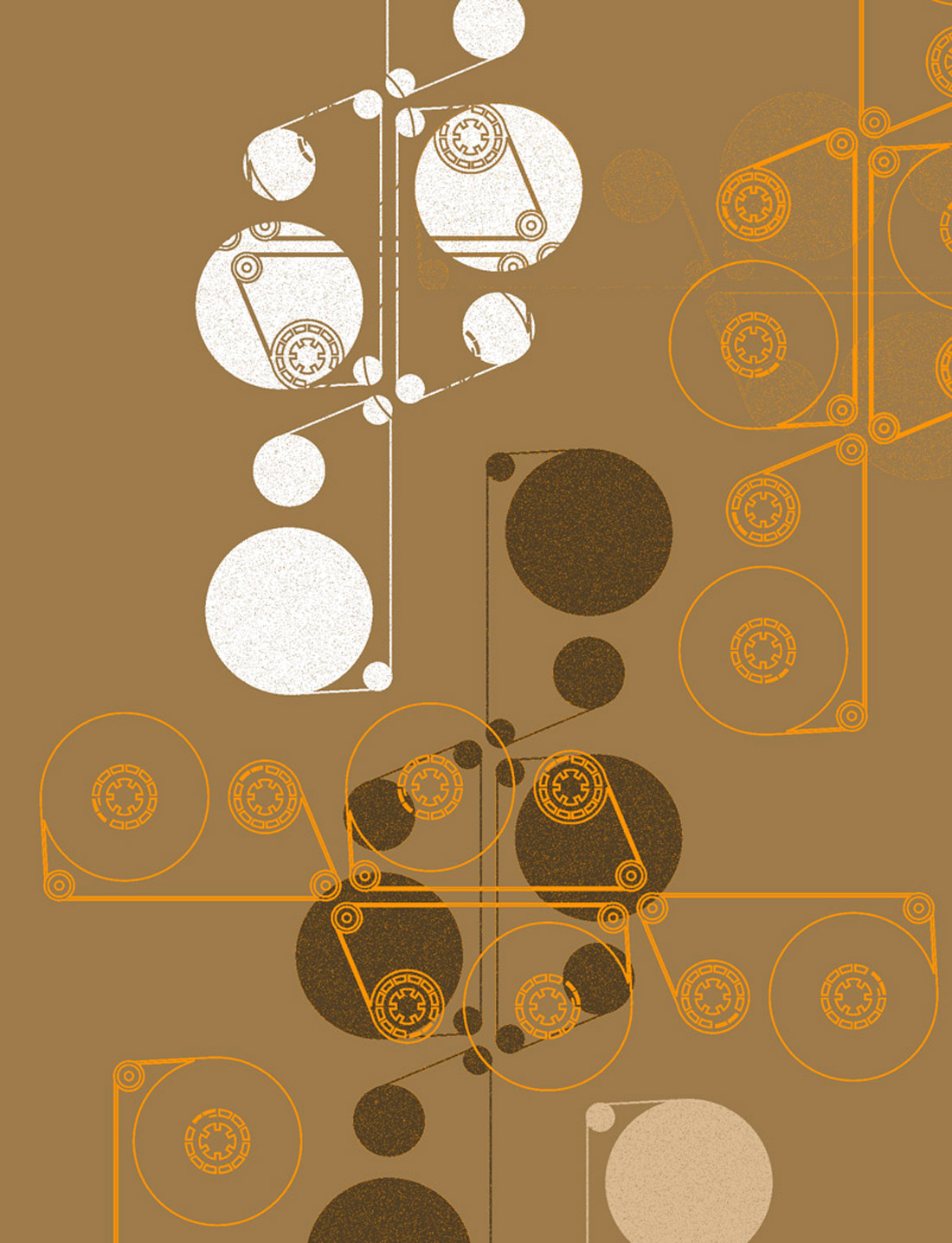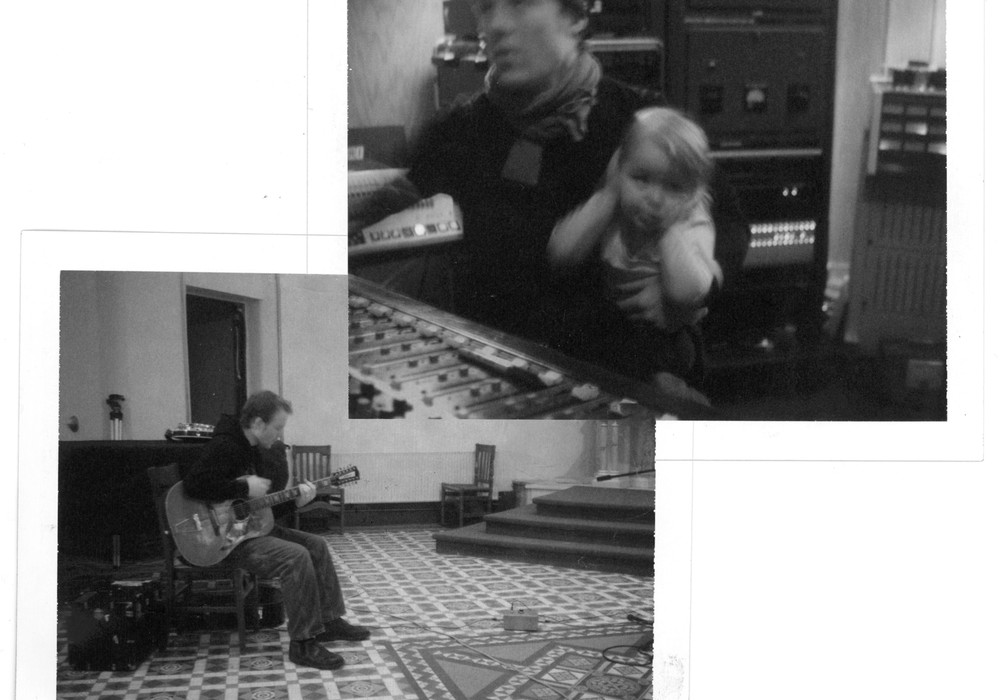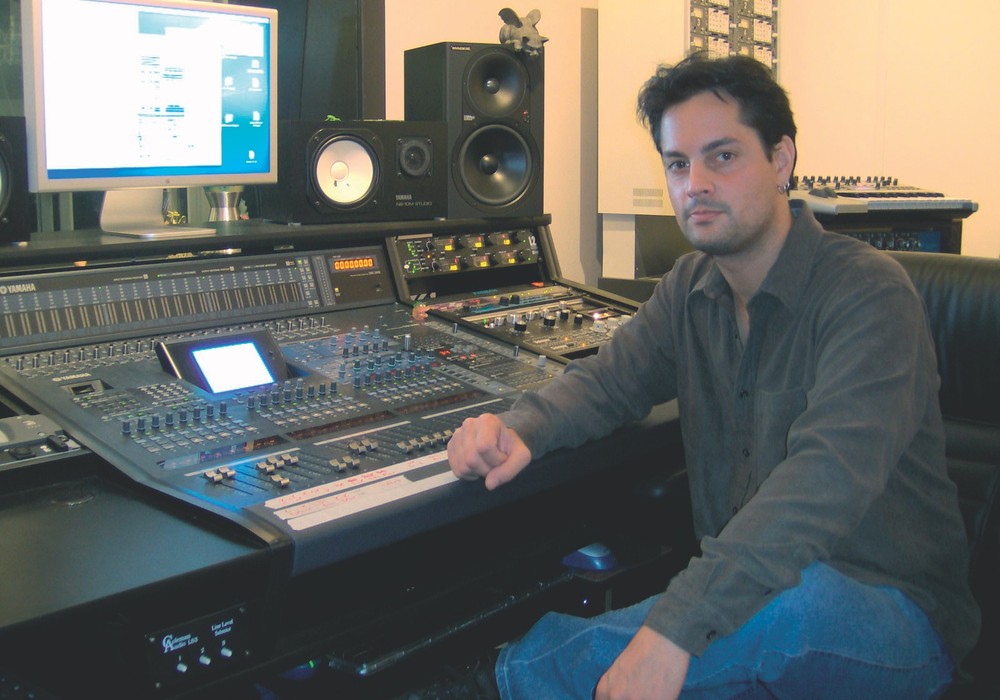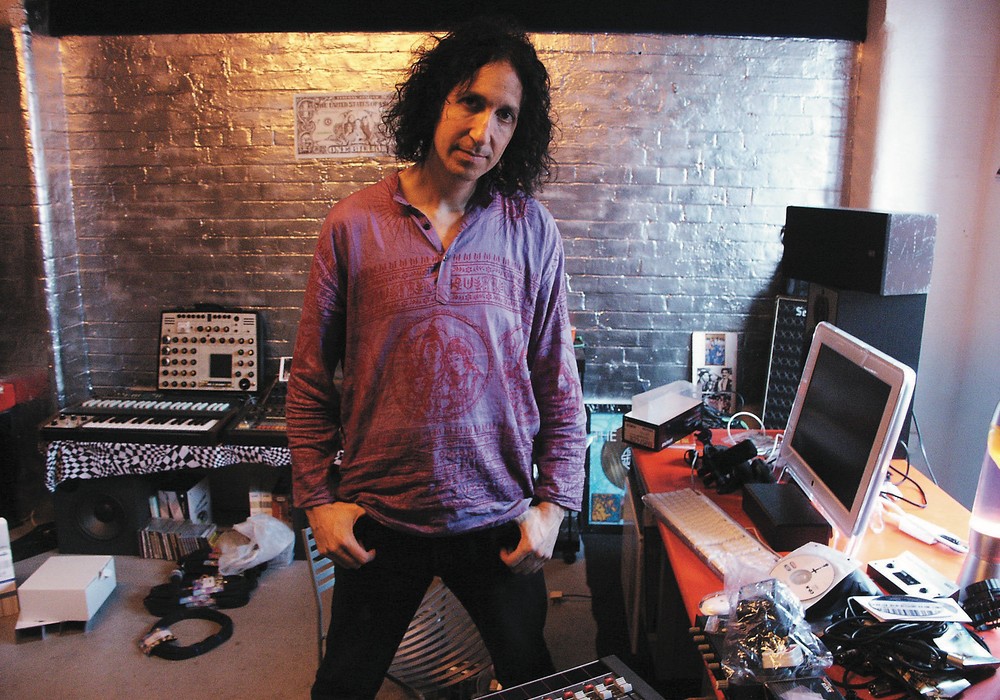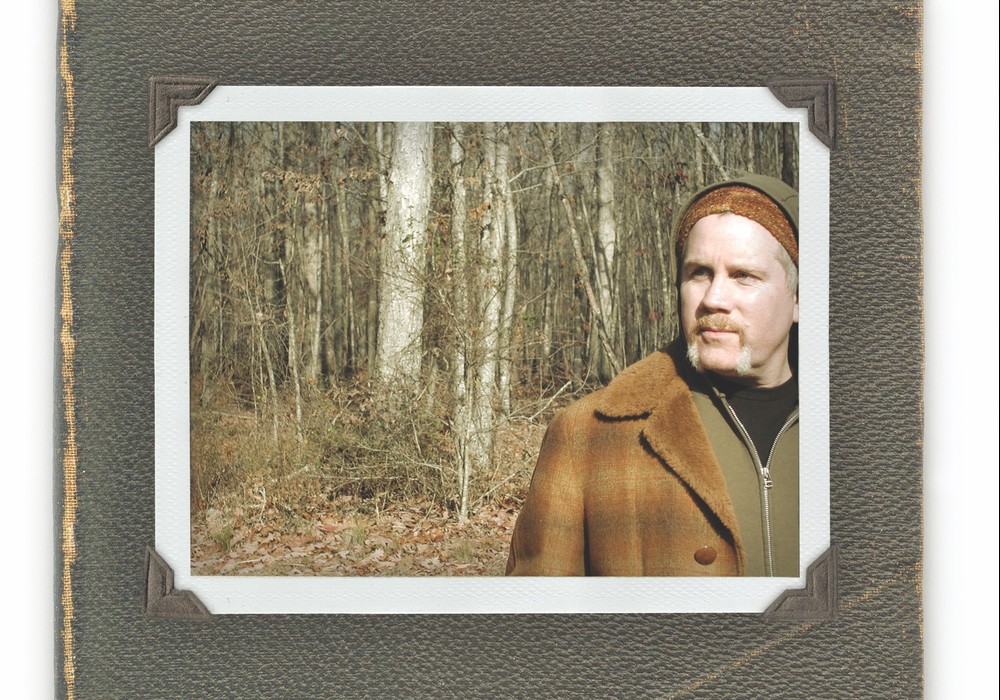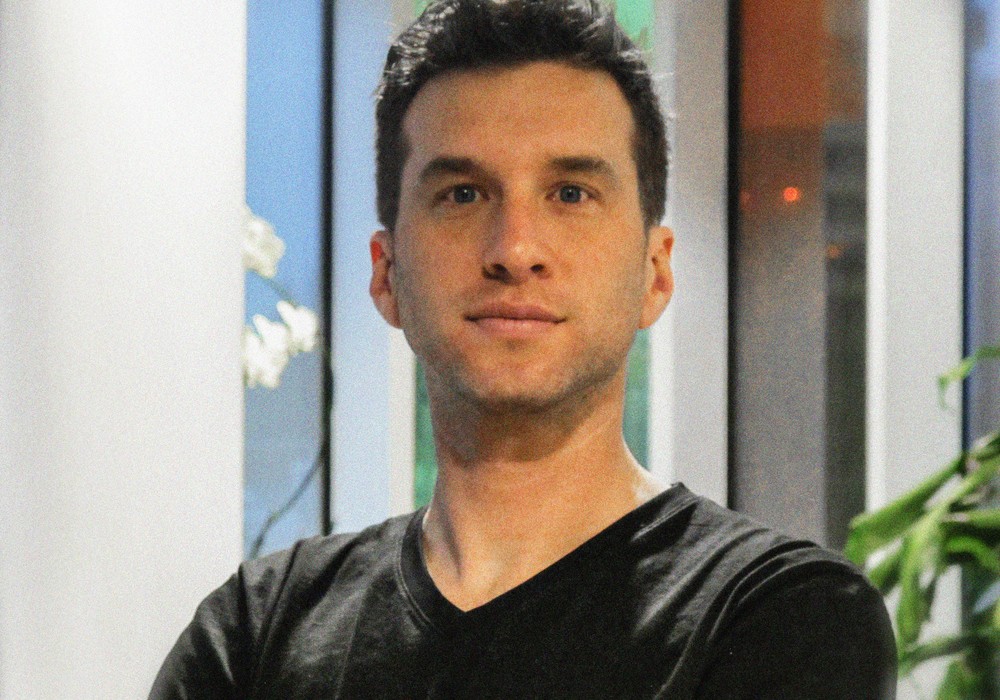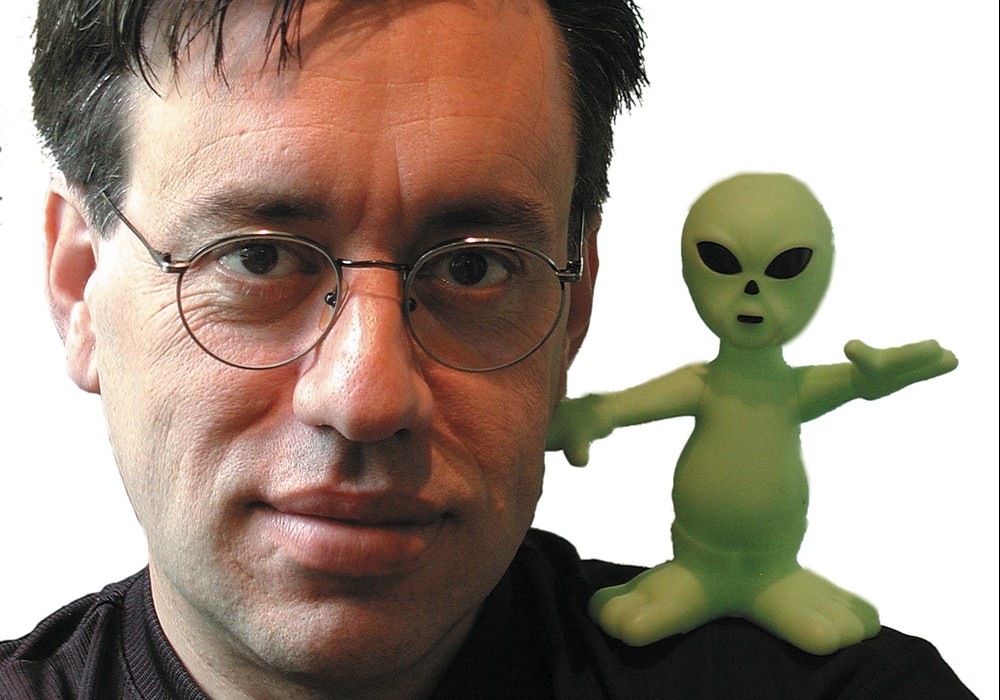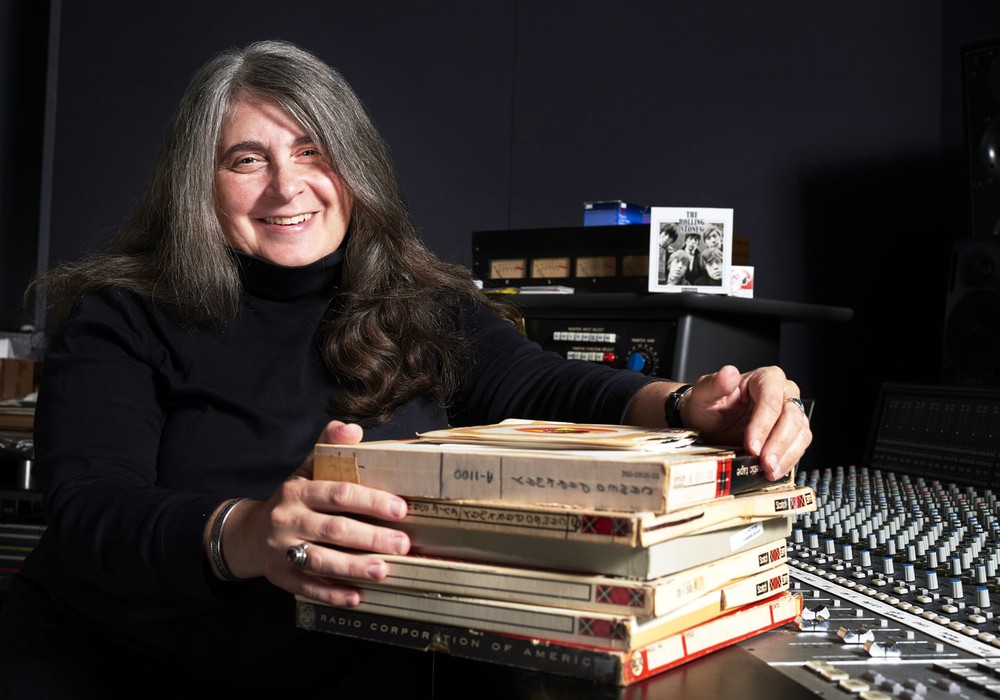John Congleton has a lot to say about "character." It's what he looks for in his equipment, his rooms and the bands he works with. This intangible desire seems to fuel the Dallas-based producer's increasingly impressive and eclectic discography.
St. Vincent, Explosions In The Sky, The Walkmen, Smog (Bill Callahan), Clinic,
Black Mountain, The Thermals, Shearwater and Okkervil River have all benefited from his work in the studio — an impressive list. Congleton's also the guitarist/vocalist for critically acclaimed avant-rockers The Paper Chase, but it's also apparent that ego and fame pale next to his desire to retain the fascination that sound held for him since he was a kid.
How did you start recording?
At 15 when my first band went to record, I knew that was what I wanted to do with my life. I'd never felt so earthed in a process at any point before. Sam McCall recorded us, and he played bass in a band I absolutely worshipped called Brutal Juice. He became a hero to me, and I knew I had to do whatever it took to learn how to record records.
That's pretty young. What do you think is the biggest difference between when you first started and now?
I now know to listen without trying to listen. That's an art. Sometimes I'll sit and watch people listen to a playback or a mix and they have scowls, frowns and squinted eyes — they are listening for the problems. Nobody on Earth listens to music like that, or at least nobody I want to make music for. I tell bands to listen like they're hearing it on the stereo or the radio. If your body asks you, "Why did they leave that in?" or, "Why didn't they fix that?" then it's most likely something to be addressed.
Before you realized recording was in the cards, what were the albums that got your attention?
Some records I still absolutely love the sound of. All the early ZZ Top records are the best rock records I can think of — my dad force-fed me those. To me that still sounds like the way rock bands should be recorded. I also was so into Phil Spector. The mystery of the way things sounded on his records still freaks me out today. They are still one of the only true accounts of audio magic I can think of. I was also really attracted to the psychedelic records that my dad owned, because they always invoked a visual response — sounds like colors. Pink Floyd might be the reason I got into recording, at the end of the day.
What are your pet peeves in the studio, whether from people or equipment?
Very little gets on my nerves about musicians or artists. If you have a low threshold for the curve balls they can throw at you, you probably should go get a job driving a truck. I love artists and their unpredictable ways, and as long as they can be serious about the work, it makes for a fun day for me. I hate dealing with badly- maintained studios — that does get my goat. I want to be thinking about making the artist comfortable, not the patchbay. When gear is all trashed and I have to focus on that instead of the artist, I feel like the studio is insulting them, and that bothers me — or when rooms sound really bad or just horribly uninteresting, and I have to start putting the drums in the kitchen of the studio, guitar players in the bathroom or the bass player on the roof or something.
So what are those studios that keep you off the roof?
Even the rooms that aren't necessarily great can have a lot of character. I like Water Music, Pachyderm, Bad Animals, Sunset Sound and Electrical Audio. There are certain kinds of bands, especially drummers, where you think, "Wow, it would great to hear them in this studio." Just having the room, you can dial in that amount of character by how far you put away the mic. You can leave a thumbprint of this room. If you record in multiple studios, it can provide these different and really interesting levels of sound.
And you have your own place as well?
I have a place I share with another engineer, Stuart Sikes [issue #65], called Elmwood Recording. It's my home base and I work there a lot. Stuart and I have been friends since he moved here in 2001. We found it was best just to combine our efforts and gear for the common good, and it's been a good time. The only negative thing is we are both too busy and need two rooms really, so we have our eyes on expanding to a larger building.
So how does your usual recording process start?
I have no scientific method to recording a band, and I'm usually into being challenged, if the band wants to do something out of my comfort zone. If the band's been playing out on tour and they obviously have a lot of chemistry live, then my mantra is everyone goes to work on the first day. Everyone is recording what is conceivably the take. You usually get much more inspired takes when they think it's happening for real. People are quick to dismiss things as scratch when what they have could be really workable and has the spirit that needs to be there. It's much more cost effective to record together, and they're often more happy than if we piece it together. Any singer/songwriter stuff I've done in pieces, and I like that too. You can come up with more interesting textures and sounds and approach it at that angle, where when you record a band live your suggestions can only be more about performance or marginal sound changes. Honestly, I'm interested in making records of all kinds.
Do you have any default signal paths?
No, but I love most Neve preamps and EQs on guitars. You can get really radical with additive EQ on guitar. I also really like Summit and Trident preamps on guitars that have a lot of character. If the player is comfortable, I really love cranking the pre to the point of distortion. Sometimes it can really wake up the harmonics. Seventy-five percent of the time, a little distortion makes anything better.
What are your go-to mics for drums?
I try to make things sound really good with tuning first and pay close attention to how the drummer plays. If the bass drum is a closed, resonant head, I'll usually use some sort of large diaphragm condenser. Lately I've really loved the Soundelux U195 [now manufactured as the Bock Audio 195]. That's an amazing microphone, and soon all will know it. I also love [Neumann] U47s for something like that as well. I'll mic the beater side as well to get more attack and blend the two. I encourage drummers to switch out different beaters for different types of songs — it's really impressive what a difference it makes. If they have a hole in the [front] bass drum [head], there are a ton of microphones that will do — the Electro-Voice N/D868 I take everywhere. It's a real plug-and-play, kind of heavily tweaked microphone. It's not good for much else, but great for kick. For a typical bright sound on a snare, I love the Altec 175 or 195 or the Josephson e22S. For a lighter touch I'm really fond of bigger diaphragm mics. A lot of the Sony C-series work well. For a real pounder the Beyerdynamic M 201 is always a winner, but the best all-around snare drum mic for almost any sound is the Shure KSM141. That is a real desert island mic for me in general. I try to not mic the bottom, but if I need to, almost anything will do as long as it's not a fussy mic. I normally like condenser mics for toms. A lot of engineers seem to go with dynamics, but my whole feeling is you know you're gonna have tons of cymbal bleed, so you may as well use a mic that has good off-axis response, and hopefully get to use that bleed as a part of the sound.
What about cymbals and room mics?
Cymbals are almost always close mic'ed. I try to avoid mic'ing anything that I know will have a lot of bleed. If I'm looking for fast attack, I'll use some sort of small diaphragm condenser, and if it's a warmer sound, probably something of the tube variety. If the cymbals are harsh I'll use ribbons. I rarely ever feel compelled to get any sort of stereo drum picture with my overheads, so I'm not at all concerned with using pairs of anything. That kind of stuff only makes sense from a symmetry point of view to me. It never sounds any better. I will normally try to achieve some sort of stereo picture of the drums with a couple of room mics. I have several sets that work really well for this. If it's a pretty great room sound, I'll use my Brüel & Kjær 4006s, if it's dark, my Neumann CMV-563s or Sony C38s, and if there is a ton of cymbal noise, my Altec 150s. After that all bets are off. I'll put mics wherever they might sound good or interesting, as long as time permits. If I can get one mic that sounds amazing right in front of the kit, I'll go with just that and scrap everything else.
What mics do you love for guitars?
Well as with anything, it starts with a conversation with the player, and then we will listen to the amp. I like ribbon mics on guitar amps, usually with a large diaphragm condenser. Something like a Royer R-121, Coles 4038, or any of the Beyerdynamic M-series ribbon mics along with a Sony C38, or AKG 414 is usually a great starting point. If I still need something brighter and sharper, I will use a dynamic mic. The Beyerdynamic M 201, M 88, or [AKG] D112 are good for that kind of sound. I also love using omni mics as much as possible on guitars, and I'm always really fond of direct guitars. I love taking directs.
Do you have a personal sweet spot you like to place a mic for guitar?
I usually go by the loudness of the amp and simple proximity effect. I love to get as much room tone on guitars as possible. That's another reason why I love omni mics. If you put one in the right place, you can get plenty of directional sound and ambiance. This is how most great guitar recordings happen. If it's something I know will have space in the mix, I get as much room ambiance on it as I can.
A lot of musicians are obsessed with doubling or tripling guitars.
It happens all the time. I blame technology for mutating to the point where people don't even have to consider how many tracks they're putting down. I always try to make people aware, with overdubbing or doubling things, that it's not the way to make things sound better. If you want them to sound different, that's one thing, but when bands aren't 100 percent into their songs, they try to mask that by adding more things. If there is someone in the band who is a great orchestrator, those ideas may override a song that's humdrum or not special, but most of the time a simple change in how the song is put together will make it sound better. You don't always need to add a boys choir or a glockenspiel. The main thing I find myself doing when I mix other people's tracks is getting rid of things that aren't necessary, and 90 percent of the time when the band listens to the mix they say, "Wow, the guitars sound great. What did you do?" Usually it's that I got rid of this tripled or quadrupled guitar that smeared their low-mids and muddied it up. There are instances where distorting the spectrum is really cool, but too often it's a crutch.
But you also love Phil Spector's Wall of Sound.
Well, that's so important to me because there is so much mystery. It hits you like a monster — like one big sound. But for the most part that's all live. Spector may have had three guitar players, but they were all playing together at the same time. It wasn't that everything came at you because everything was doubled. It's not a multitrack doubling. I love when records can present themselves to me where I'm like, "Wow, what is that sound? What's that instrument?" Sometimes it's just how the band plays together to give it that intangible or mystical feel that you can't explain. That's what I love about making records, and that's why it gets harder to make records — because that magic keeps getting robbed a little. You have to try to reach for those moments. I try to work with those bands that make me feel that, and it makes it a lot easier.
Do vocalists pose more or less difficulty to you?
Every singer is a new challenge. I try to avoid doing all the vocals at once under most circumstances, which helps get more inspired performances. After a few songs you find out what's working with the communication process. I like working on vocals because it's when things can really come together for a record to me. I love being able to help when a vocalist hits a wall. It's hard to be the singer sometimes. There's a lot of pressure, and new singers are usually hard on themselves. It's very common to get singers who sound excellent, but want to bury or disguise their vocal in the mix — that's often a struggle. I'll usually throw up a couple of mics and shoot out between them if I haven't recorded them before. Sometimes they both sound great, and I'll record the vocals in stereo if the music is spacious enough. I love the [Shure] SM7 for aggressive vocals, because [the vocalist] can actually hold onto the mic. The deep, dark secret about vocal mics is a great singer will sound really great through anything, but a substandard singer will only sound incrementally better through different mics. I just pick a mic and make the process as relaxing as possible. Futzing around with a vocal sound will just bum most singers out. I try to get to recording vocals as quickly as possible, simply because a lot of times the best takes are the early ones.
Are you happy to work with whatever equipment is available?
I'm usually fine working with what's around, though there are things I really prefer. I'm not much of a gear head, but there's nothing quite like finding something you feel like you never want to do a session without again. It's all about finding the character of a sound to bring out and using the tools to make that happen. After a while you just know what will do best for certain things. What I look for in all gear is a piece that can do one thing extremely well.
So you wouldn't consider yourself a gear nut?
I am a bit of a microphone nut. I buy them all the time. My collection is getting a bit ridiculous. Rare mics and cheapo stupid ones — I like them all. I'm one microphone away from having the entire Lomo 19A set in stereo pairs. It's important to have a lot of mics. People talk about how old microphones are cool, but in the old studios back in the '50s and '60s, they didn't have many microphones, and they used them over and over. One thing that's great about modern recording (I don't say many great things about modern recording) is that there are so many options in microphones. Just switching out microphones on the double is so important. Based on how many tracks you have, you need to find pockets for those sounds. Something as simple as switching out the microphone makes a huge difference. It may not seem like a big deal at the time and a lot of people may question it, but it's a quick thing to do and makes such a difference in the long run. It's important to have a certain kind of mic on a snare drum based on what kind of mic you have on the guitar. It really makes your job so much easier, not only to make it sound good, but really to give everything a place. If you have a good mic and room and player, you pretty much just don't have to fuck it up.
I love your use of panning. How important is this to you?
I love radical panning — when it comes to mixing, it's more important than EQ, compression, effects and everything all rolled up into one. But one thing to think about is that a lot of people will experience your mixes in mono more often than true stereo. Anytime somebody is listening from a distance, they are listening basically in mono. At Elmwood we have a set of speakers set up in the lobby, which is in the room next door to the control room. I love switching those on while I'm mixing and listening in the control room, because that's the way most people listen to music — from the other room while cleaning or talking to friend, etc. It's a way to put things in perspective in the middle of a mix.
Producers always say they welcome artist input during mixing, but can they get a little too involved?
Well, technically I don't think they could ever get too involved because it's their record we're working on. But it's always valuable for any band to remember that operating strictly out of emotion when mixing can really lead to some stupid sounding mixes — it's important to know when to let go. Completion anxiety is the worst thing too see happen to someone when making art, and you are seeing it more and more with people making records at home and spending years. It's not like anyone out there is making better records, because with technology people can pontificate endlessly for hours about a tiny detail. I have a theory that if you aren't a little scared shitless about what you are working on, then it's not worth doing, or at least too safe a territory, and endless amounts of time to tinker with things takes that away.
As someone who often just mixes a record, do you have some sticking points about other producers?
Mostly my issues like that come from home recordings done on very bad, very harsh digital platforms. A day of working on that stuff and my ears are calloused. Mbox, you are my enemy. It's a little sad to me that people making records this way are robbing their art of a better translation. I confidently believe it's best to work with somebody on good gear in a determined amount of time. Not to be crass or dismissive, but we've all got to have some balls and do this for real. Making decisions, following your gut and being a confident artist is when everyone is their best. For years and years records were made this way, and now there are these other options. Are records getting better? I think everyone would say, "Not really."
Would you say production can make a bad record good?
Tasteful production can make it a little more fun to listen to, which counts for something to me. But let's face it, for a record to be truly great, all cylinders need to be firing. Obviously there is no scientific method that one could ever follow, but I do believe that in art there are not a lot of truly bad ideas, just tons and tons of failed visions. What something sounds like is as important as what you play. Why spend years perfecting "your sound" to document it poorly? Great songs are great, great playing is great, great documentation is great — but to me none should override the others.
As someone who got into production from more of a punk rock angle, do you also have an interest in the science behind engineering? Are the physics of sound important to you?
My interest in the physics of sound hinges only on what I can use to my advantage. I need to understand these basic principles in order to maneuver my way around a session and troubleshoot to get the sounds I want. A good understanding of phase and developing a keen ear for when things are even marginally out of phase is something that any engineer needs to have. If you're worth your salt, you should pick up on that on your first year. Then you get into things where a room you're mixing in is really live, so you expect your bass frequencies to be super tight when you're mixing, etc. There are a lot of practical things that get you through day-to-day. But as far as writing out equations or anything, I never got into that. Writing down an algorithm won't help me when I'm recording a punk rock band. But if I need help in that way, I have friends who are really talented with those things. I can just call them.
Check out a video interview with John, John Vanderslice and Zach Rogue: tapeop.com/video/81/john-congleton
www.elmwoodrecording.com, www.myspace.com/johncongletoniii
